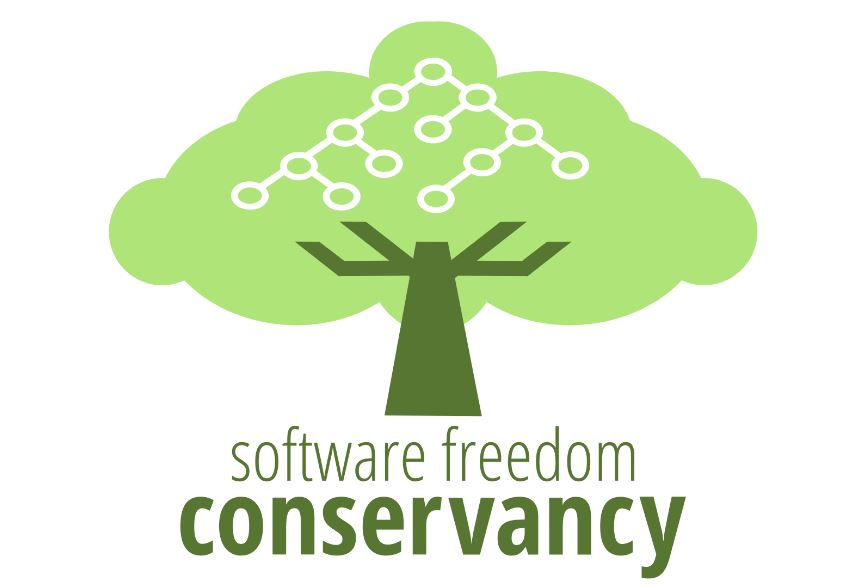The Software Freedom Conservancy (SFC), a non-profit that provides infrastructure support for free and open source software projects, is urging developers to stop using GitHub and move their projects to other platforms. The organization has historically had a number of public grievances with GitHub, which it outlines on its Give Up On GitHub site. GitHub’s public launch of Copilot last week was the final straw for SFC.
“We are ending all our own uses of GitHub, and announcing a long-term plan to assist FOSS projects to migrate away from GitHub,” SFC Policy Fellow Bradley M. Kuhn said. “While we will not mandate our existing member projects to move at this time, we will no longer accept new member projects that do not have a long-term plan to migrate away from GitHub.”
The SFC’s member projects include BusyBox, Git, Homebrew, OpenWrt, Buildbot, Houdini, and phpMyAdmin, to name a few. The organization is financially supported by Google, Mozilla, and Redhat, among others.
Kuhn said the SFC has been actively communicating with Microsoft and GitHub for a year about concerns regarding Copilot. He claims GitHub ignored invitations to discussions on the moral implications of AI-assisted software, and neglected to answer the SFC’s questions.
“Launching a for-profit product that disrespects the FOSS community in the way Copilot does simply makes the weight of GitHub’s bad behavior too much to bear,” Kuhn said.
Specifically, the SFC is demanding GitHub cite legal precedent for its former CEO’s claims that “(1) training ML systems on public data is fair use, (2) the output belongs to the operator, just like with a compiler.”
The two other questions the SFC could not obtain answers for are as follows:
- If it is, as you claim, permissible to train the model (and allow users to generate code based on that model) on any code whatsoever and not be bound by any licensing terms, why did you choose to only train Copilot’s model on FOSS? For example, why are your Microsoft Windows and Office codebases not in your training set?
- Can you provide a list of licenses, including names of copyright holders and/or names of Git repositories, that were in the training set used for Copilot? If not, why are you withholding this information from the community?
The SFC contends that Microsoft and GitHub are exploiting FOSS for profit and that its behavior, relative to its peers (Amazon, Atlassian, and GitLab), is markedly worse when it comes to supporting FOSS.
“GitHub also has a record of ignoring, dismissing and/or belittling community complaints on so many issues, that we must urge all FOSS developers to leave GitHub as soon as they can,” Kuhn said.
The SFC formed a committee earlier this year to investigate copyleft implications of AI-assisted programming. They are exploring a preliminary finding that AI-assisted software development can be done in a way that respects FOSS licenses.
“While Microsoft’s GitHub was the first mover in this area, by way of comparison, early reports suggest that Amazon’s new CodeWhisperer system (also launched last week) seeks to provide proper attribution and licensing information for code suggestions,” Kuhn said.
So far SFC’s call for action has received a tepid response. Although Copilot remains a controversial tool to many, its use of open source code is perceived differently by those who have embraced it as a utility.
“It’s been really useful in beta when I had to make some config files in Ruby, which I rarely use and often forget,” software engineer Joe Mattiello said. “FOSS is give and take. The point of open-source is to be open. Though any projects that use non-commercial licenses shouldn’t be included if it’s a paid project.”
Another prevailing opinion is that GitHub didn’t misuse open source software in training its AI on OSS projects but rather allowed AI to read the source code and learn from it. In this context, the SFC’s fervent crusade against GitHub for using shared code appears more absurd.
For the time being, it appears the SFC is content to continue research with the help of its committee, but part of the organization’s work is to assist member projects in enforcing the terms of FLOSS licenses, including through litigation. Its heavy focus on copyleft compliance, including enforcement of the GPL, may come to bear on Copilot in the future, as the SFC’s committee learns more about the copyleft implications of AI-assisted programming.











